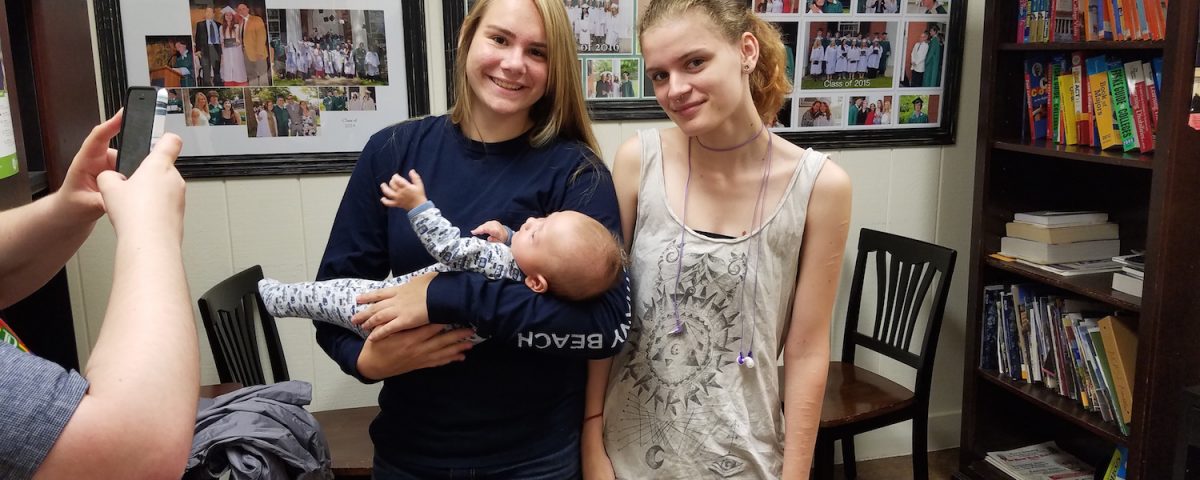What Do Dogs and Babies Have to Do with High School?
What Do Dogs and Babies Have to Do with High School?








“Happiness is a warm puppy.”
-Charles Schultz
Adolescence is, of course, characterized by rapid, radical, and pervasive change. That’s why it’s so hard to be a teenager. As teens navigate these dizzying physical, cognitive, and social metamorphoses, it’s critical to offset all that disruption with a sense of connectedness and stability. A little cuteness doesn’t hurt either. What we’re talking about here is the critical importance of providing a stable sense of family and of home to adolescents so that they can progress through this daunting developmental phase and emerge as healthy young adults.
At Oliverian, that’s where dogs and babies come in.
The Mood-Boosting Power of Puppies
At Oli, our approved campus dogs are not here for the convenience of their owners. They have job to do (for which they are amply remunerated with Milk Bones). There’s plenty of research to support what our Oliverian experience tells us: daily interaction with pets not only reduces stress, but can improve learning outcomes and strengthen interpersonal relationships. During therapy sessions, for example, our students can snuggle with a friendly dog on the couch, not only relieving stress, but also helping build rapport between student and therapist.
Babies — and other members of faculty families — have a similar effect. Spending time with campus families helps our students feel safe, nurtured, and connected. It’s routine at Oli for our students to hold a teacher’s baby (there are currently five infants on campus, along with more than a dozen older children!) over a shared meal, cooing over chubby cheeks while triggering a mutually beneficial surge of oxytocin! Spending time with both dogs and babies fosters nurturing instincts in teens, which improves empathy and social interaction by helping students better understand their own feelings and the feelings of their classmates. We love our students and love having them participate in our families, plus, it makes our school just work better.
Enhancing Academic Development
This family-style approach to schooling doesn’t just generate social/emotional benefits; it can also improve learning in the classroom. A 2013 study , for instance, revealed that having a classroom dog can actually enhance education by reducing stress and promoting a positive attitude toward school itself.
Outcomes like these are in keeping with the developmental assets theory: a model of assessing healthy youth development that encourages certain strengths in adolescents that foster resilience to high-risk environments and promote thriving behaviors. Regular interaction with classroom dogs can boost many of these assets, including integrity, honesty, school engagement, and personal responsibility.
Authoritative Faculty Parenting
As our students build meaningful relationship with faculty members, their families, and their furry friends, our staff are able to incorporate the tenets of authoritative parenting into their everyday interactions. That means they listen to our students, express warmth and nurturance, encourage independence, place limits, establish expectations, and administer fair and consistent discipline. This approach requires a very high staff to student ratio (approximately 1.3 to 1) and a highly engaged counseling, dorm, and academic faculty.
The culture we strive to cultivate at Oliverian is one that balances our students’ developmental prerogative for exploration and change with their need for nurturance and stability. As long as our campus dogs and babies do their part(!), our tight-knit campus “family” gives students the ideal mix of autonomy, boundaries, challenges, nurturance, and good old fashioned love. The result is a safe place where students can find success on their own terms and where even “mistakes” become critical opportunities for learning and identity formation.
